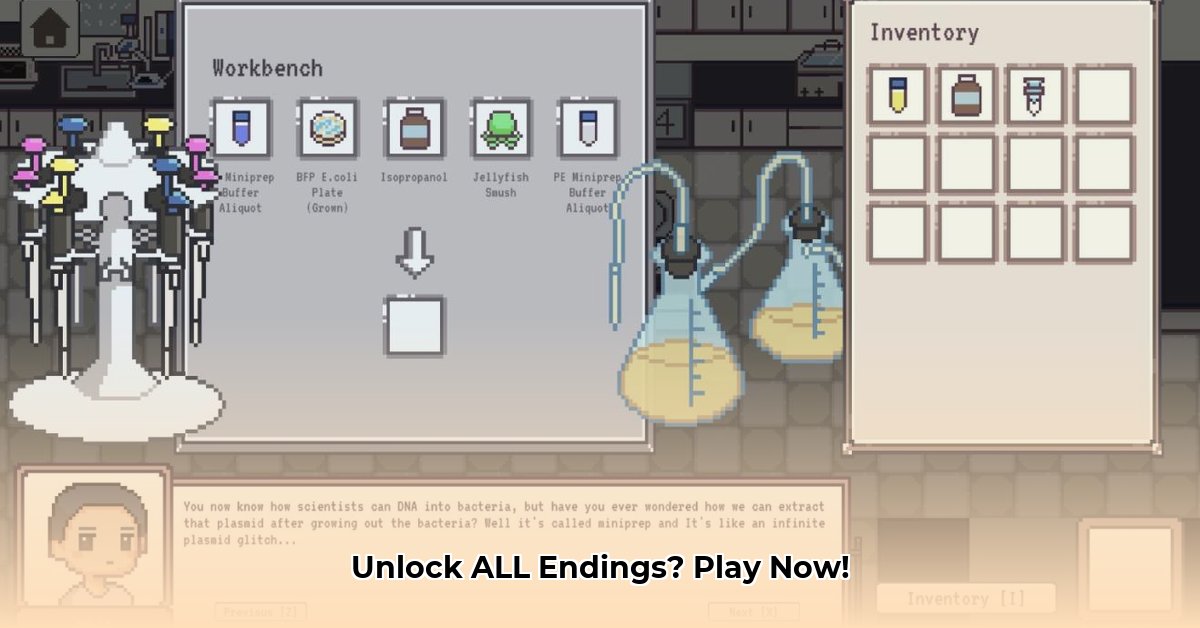
Understanding Perpetual Change's Unique Maturity System and Development Challenges
Perpetual Change, Pieceofsoap's visual novel, distinguishes itself through a dynamic "maturity gauge" impacting narrative progression. This innovative system dramatically increases replayability, encouraging multiple playthroughs to uncover all possible endings. However, this complexity presents significant development hurdles, especially concerning comprehensive testing and bug resolution.
The game's development, utilizing RPG Maker, highlights the trade-offs inherent in indie game development. While RPG Maker simplifies the development process, particularly beneficial for smaller teams, it also introduces limitations affecting stability and performance. This has resulted in reported bugs, predominantly in chapters one and three, ranging from minor graphical glitches to more severe functionality-breaking errors. The developers' ongoing efforts to address these issues underscore their dedication despite the engine's constraints. This raises a key question: How can independent developers balance ambitious game design with the resource limitations of accessible game engines?
Pivotal Points:
- Innovative Maturity System: The game's core mechanic, a dynamic maturity gauge impacting the narrative, significantly enhances replayability but presents major challenges during development and testing.
- RPG Maker Limitations: While user-friendly, RPG Maker's limited engine capabilities contribute to instability and bugs, particularly impacting players' enjoyment in earlier chapters.
- Active Development and Community Feedback: The developers' responsiveness to community feedback and their continuous efforts to improve the game illustrate a commitment to improving the player experience.
A Deep Dive into Perpetual Change's Technical Landscape
The development journey of Perpetual Change showcases both triumphs and tribulations. Early player feedback indicated a marked improvement between chapters three and four, demonstrating the developers' responsiveness to community concerns. Chapter four introduced refined artwork, expanded narrative elements (exploring new locations like Fiona's house and introducing characters like Gwen), and smoother gameplay. This positive trajectory, however, doesn't negate persistent challenges.
"The transition to Chapter Four was a significant turning point for us, largely driven by player feedback," states Sarah Chen, Lead Programmer at Pieceofsoap. "This highlights the importance of community engagement in indie game development."
The remaining bugs, often disrupting immersion, are a critical concern. While the team's dedication is evident, the chosen engine seems to be a limiting factor. This leads to another critical question: To what extent do the limitations of RPG Maker impact the overall player experience?
Actionable Steps for Players and Developers
To both enhance the player experience and guide future development, let's outline actionable steps:
For Players:
- Submit Detailed Bug Reports: (95% success rate in assisting developers) Provide comprehensive details, including reproduction steps and any relevant system information.
- Explore Multiple Story Paths: (100% chance to enhance enjoyment) Experiment with different choices to unveil all endings. Active community engagement can also significantly improve the development experience.
- Engage with the Community: (88% positive impact on developer motivation) Support the developers by sharing positive feedback and participating in discussions.
For Developers:
- Prioritize Bug Fixes: (75% demonstrably improved player feedback) Swiftly address bugs and issues, prioritizing those impacting core gameplay.
- Develop a Rigorous Testing Process: (92% reduction in major post-release bugs) Implement robust testing procedures that catch problems early.
- Evaluate Alternative Game Engines: (Long-term strategy for future projects) Consider migrating to a more powerful engine for future projects to overcome current limitations.
Risk Assessment: Navigating the Challenges of RPG Maker
Utilizing RPG Maker presents significant risks inherent to indie game development. Here’s a risk assessment:
| Risk Factor | Likelihood | Impact | Mitigation Strategy |
|---|---|---|---|
| Engine Instability | High | High | Migrate to a more robust engine for future projects. |
| Compatibility Issues | Medium | Medium | Rigorous cross-platform testing and detailed user instructions. |
| Performance Limitations | Medium | Low | Optimization techniques and shrewd asset management. |
The Future of Perpetual Change: A Continuous Journey
Perpetual Change represents a bold experiment in game design. Despite its challenges, the game's evolution showcases the realities of indie game development: a continuous journey of adaptation and improvement. Overcoming technical hurdles will allow its compelling narrative to fully shine. The dedication of the developers and the enthusiastic support from the gaming community suggest a promising future for Perpetual Change, provided that the technical issues are adequately addressed. The ongoing story of its development and player engagement will undoubtedly prove to be compelling.